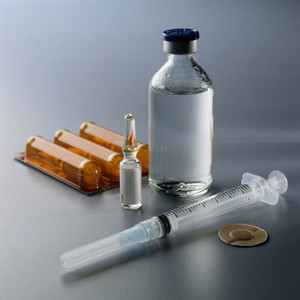TrasGEX, which is currently under development by German biopharma company Glycotope, is shaping up to be an improved version (or biobetter) of Roche’s blockbuster cancer drug Herceptin (trastuzumab). Trastuzumab targets the HER2 receptor, commonly overexpressed in a variety of cancers, such as HER2-positive breast and stomach cancer.
Biobetter of trastuzumab on the horizon
Biosimilars/General
|
Posted 14/10/2011
 0
Post your comment
0
Post your comment

Biosimilars are structural imitations of the originator, whereas biobetters are improvements to the originator biological molecule. While biosimilars promise the same effect at a reduced price, a biobetter will possess some molecular or chemical modification that constitutes an improvement over the originator drug and its biosimilar competitors.
The improvement in this case is not in the drug, but in the complex polysaccharide coating attached to it. The carbohydrate chains attached to the antibodies serve various functions. For instance, some proteins do not fold correctly unless they are glycosylated first. Other drugs are quickly degraded unless protected by glycosylation. Glycosylation may also play a role in cell–cell adhesion, a mechanism employed by cells of the immune system.
Glyco-optimised TrastuzuMab-GEX (TrasGEX)
TrasGEX is the name of the biobetter antibody. A significantly better therapeutic outcome is promised for all patients eligible for trastuzumab treatment. It is hoped that the fully human nature of TrasGEX’s host cell lines will also avoid the common immunogenic reactions against host-derived non-human components.
Announcing enrolment of the first patient in the phase I trial on 19 September 2011, Glycotope CEO and Founder Dr Steffen Goletz said that, after CetuGEX and PankoMab-GEX, TrasGEX is their third anticancer antibody to enter clinical trials. ‘Our glycol-optimised Follicle-Stimulating Hormone FSH-GEX has already completed clinical phase IA with very exciting results,’ Dr Goletz said.
About Glycotope
Glycotope, founded in 2001 in Berlin, Germany, focuses on the optimisation and humanisation of therapeutically relevant sugar structures on biopharmaceuticals, known as glycosylation This not only leads to important therapeutic benefits for a significantly increased number of patients, in addition, the GlycoExpress platform is superior in production yields, product quality and reproducibility compared to other production platforms.
Together with Glycotope Biotechnology in Heidelberg, Germany, Glycotope has evolved into a leading integrated glycobiology company, covering all phases in drug development such as lead discovery and optimisation, preclinical and process development, good manufacturing practice production and clinical development. With more than 140 employees, the group has grown to one of the largest biotech organisations in Germany.
Related articles
Biosimilars or biobetters – what does the future hold
Biobetters rather than biosimilars
Source: Glycotope
Research
Reaching ESG goals in pharmaceutical development
What is the future for the US biosimilar interchangeability designation
News
EMA recommends approval for teriparatide biosimilar Zandoriah
FDA approves third interchangeable ranibizumab biosimilar Nufymco
Most viewed articles
The best selling biotechnology drugs of 2008: the next biosimilars targets
Global biosimilars guideline development – EGA’s perspective
Related content
Samsung Bioepis wins Pyzchiva case; Regeneron patent rulings threaten foreign biosimilars
Chinese biosimilars go global: growth, partnerships, and challenges
Stelara biosimilars enter US market with 85% discount in 2025
IFPMA publishes position on pharmacy-mediated substitution for biosimilars
Samsung Bioepis wins Pyzchiva case; Regeneron patent rulings threaten foreign biosimilars

Biosimilars/General Posted 30/07/2025
Chinese biosimilars go global: growth, partnerships, and challenges

Biosimilars/General Posted 30/04/2025
IFPMA publishes position on pharmacy-mediated substitution for biosimilars

Biosimilars/General Posted 21/03/2025
The best selling biotechnology drugs of 2008: the next biosimilars targets







Post your comment